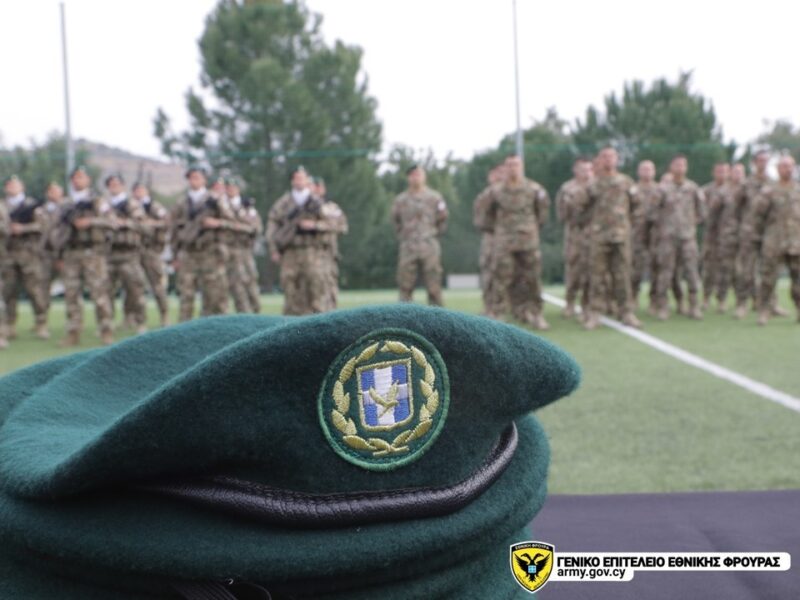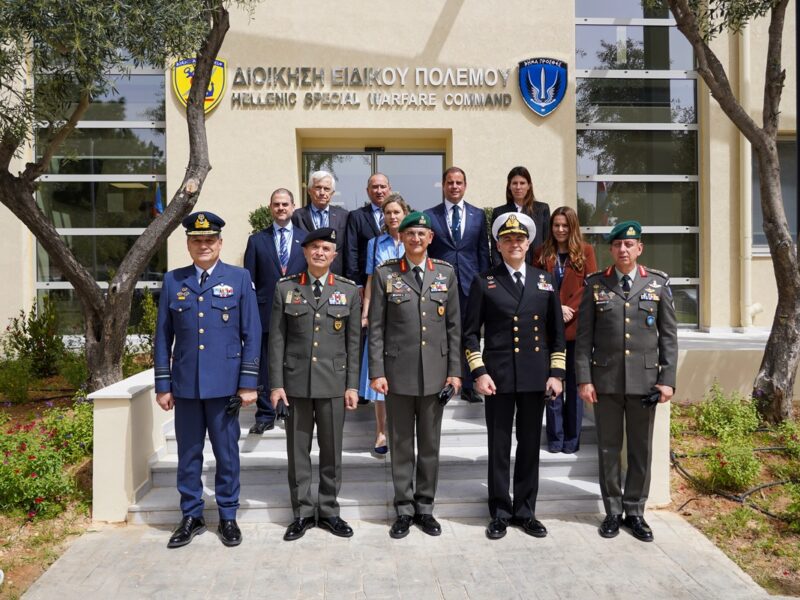Political game – blackmailing Erdoğan or Turkey’s operational need?
The statements of the Turkish President RT Erdoğan on July 06, 2022 after his telephone conversation with the French President E. Macron, caused discussions about Turkey’s real intentions for the procurement-co-production of France’s SAMP-T Long-Range Anti-Aircraft – Anti-Missile System – of the EUROSAM Italian Consortium, writes the lieutenant general e.a. Lazaros Kambouridis, in his new analysis.
Mr. Kambouridis is a graduate of the School of National Defense, holds an MBA from Nottingham Trend University, a Graduate of the Department of History & Ethnology of the University of Athens, and a PhD candidate at Panteion University, while he was a member of the Greek Diplomatic Mission in Istanbul in the period 1995-1999, Defense Attaché at the Greek Embassy in Ankara in the period 2013-2017.
In particular, the Turkish President mentioned that, with his French counterpart, among others, they also talked about starting a program, which will include maximum cooperation, for the development and supply of the system.
The issue of Turkish interest in the SAMP-T System resurfaced last March during the G-20 Summit, with statements by the Turkish President, who spoke of related talks with his French counterpart and the Italian Prime Minister M. Draghi.
There were four systems that took part in the relevant competition in August 2013, the Chinese FD-2000, the US Patriot PAC-3, the Franco-Italian SAMP-T and the Russian S-300 PMU2.
Then the Chinese system was selected which, after continuous processes and consultations, was rejected by Ankara the following year after the American pressures and despite the fact that the Chinese side had also promised the delivery of know-how, since Turkey’s strategic goal is not the immediate supply of a system but co-production and technology transfer.
In the period 2014-2015, the discussions of the Turkish side with the Franco-Italian consortium for the SAMP-T System began under two conditions, the transfer of know-how to the Turkish companies as well as the co-production. Ankara did not discuss the issue of direct procurement of the system at all. The three countries (Italy, France and Turkey) had signed a joint “declaration of intent” in 2017 to strengthen cooperation in the joint production of an anti-aircraft – anti-missile system.
In 2019, Turkey reached an agreement with Moscow for the supply of the S-400 System. The relevant agreement was for the immediate supply of one array and a second one in a second year at a total cost of $2.5 billion. After the delivery of the first batch was completed after the American reactions and sanctions based on the CAATSA Act, it froze the issue of second array while the first array remains inactive at the facilities of the former 4th AKINCI Air Base outside Ankara.
The relevant talks with the French-Italian EUROSAM Consortium for co-production and know-how transfer were also shelved due to the European sanctions against Turkey in the period 2019-2020.
The questions that arise are, why Ankara now brought up the issue of the SAMP-T System, as well as why the Turkish President in his last conversation with his French counterpart referred to the development and procurement of the System?
Political game – blackmailing Erdoğan or Turkey’s operational need?
In order to give relevant answers, we should keep in mind two main points of reference of the Turkish strategy in this particular matter:
(1) Ankara does not aim at the direct supply of the Long Range Anti-Aircraft – Anti-Missile System, but at co-production and securing know-how.
(2)Turkey always uses the issue of receiving defense material as a political leverage card in order to secure a political benefit. This is evident from the way in which Turkey rejected the Chinese system and a few years later procured the Russian S-400 System. The award to the Chinese CPMIEC for the FD-2000 System was made as a reaction by Ankara immediately after the Park events. Gezi where the Turkish President openly named the American side as the instigator of the events. Also, the procurement of the Russian S-400 was done with purely political criteria and in opposition to Ankara’s strategy of rejecting any proposal that did not contain the condition of co-production – transfer of know-how. In the Turkish decision to immediately supply the Russian system without conditions of co-production – transfer of know-how, the deepening of relations with Moscow and the sending of a message to the USA, since the Turkish President also considered the American side responsible for the coup attempt of July 15, 2016 and in the non-extradition of Imam Gülen.
The debated reading of the statements of the Turkish President on July 6 after the communication with the French President for direct supply from Ankara of SAMP-T is wrong, since the two Turkish conditions of co-production and the transfer of know-how continue to exist.
Ankara returned to the issue of co-production of SAMP-T, for the following reasons:
After the NATO Summit in Madrid, Ankara is trying to take advantage of the general climate of the lifting of the sanctions that had been imposed in the 2019-2020 period in Turkey.
The Turkish side, taking advantage of the situation, is trying to approach the European side, after noticing that Greek Diplomacy has overshadowed it.
The Turkish President wants to send a message that he is harmonizing with the West, since he will proceed with cooperation to acquire a system that can be operationally harmonized with NATO systems.
It is estimated that, in the future, the issue of co-production – transfer of know-how with the Franco-Italian Consortium for the SAMP-T System will not proceed, since the Turkish side “goes beyond the dug-out” in the matter of acquiring the relevant know-how – technology, which it had foreseen by the French and Italian sides at the beginning of the cooperation in the period 2014-2015. This is one of the “vulnerable points” of the Turkish Defense Industry, namely the acquisition of critical cutting-edge technologies for the construction of large weapons systems.


